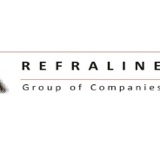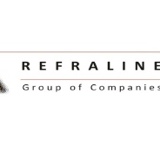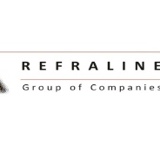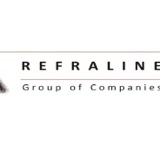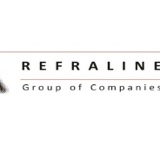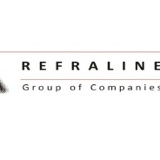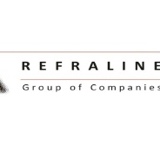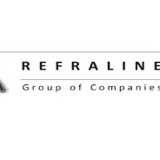Information
-
Document No.
-
Audit Title
-
Client / Site
-
Conducted on
-
Prepared by
-
Location
-
Personnel
-
Scope of Audit:
Opening meeting:
-
Complete attendance register
-
Objectives of the audit: - Not to reject the system - Re-occurrence may point to system failure - Can't cover all aspects - Where no non-conformance detected does not mean non exist, sample of activities.
-
Review of audit programme
-
Company representative:
-
Function of company representative
-
Time of closing meeting
-
Confidentiality
-
Reasons for aborting audit
-
Scoring of audits
-
Audit scoring legend: 0 = Not addressed at all 1 = No evidence of effective application (even if implemented) 2 = Implemented / partly implemented 3 = Implemented / partly effective 4 = Fully implemented and effectively applied
-
Clarification of findings: 0 = Red (No) - Non-conformance - action plan approved and monitored by SHEQ department. 1 = Red (No) - Finding - (<5 requires action plan) 2 = Red (No) - Finding - (<5 requires action plan) 3 = Green (Yes) - Observation 4 = Green (Yes) - conforming 3+ System deficiency scores (0) = system breakdown in relevant clause Clause not relevant = N/A - (4)
-
Invite questions
-
Comments:
Audit Preparation
-
Review corrective actions for previous IA findings
-
Review corrective actions for previous EA findings
-
Review corrective actions for any customer complaints
-
Review corrective actions for any customer audit findings
4.0 Quality Management System
4.1 General Requirements
-
Has the organization established, documented, implemented and maintained a quality management system?<br>
-
Does the organization continually improve the effectiveness of its quality management system in accordance with the requirements of this International Standard?<br>
-
Has the organization:<br>determined the processes needed for the quality management system and their application throughout the organization (see 1.2)?
-
determined the sequence and interaction of these processes?<br>
-
determined criteria and methods needed to ensure that both the operation and control of these processes are effective?
-
ensured the availability of resources and information necessary to support the operation and monitoring of these processes?<br>
-
monitored, measured where applicable, and analysed these processes?<br>
-
implemented actions necessary to achieve planned results and continual improvement of these processes?
-
Are these processes managed by the organization in accordance with the requirements of this International Standard?<br>
-
Where the organization chooses to outsource any process that affects product conformity to requirements, has the organization ensured control over such processes?<br>
-
Is the type and extent of control of such outsourced processes defined within the quality management system?<br>
-
Comments:
4.2.1 Documentation Requirements
-
Has the organization documented their quality management system?<br>
-
Does the documentation include documented statements of a quality policy and quality objectives?<br>
-
a quality manual?<br>
-
documented procedures and records required by this International Standard?
-
Control of documents?<br>
-
Control of quality records?<br>
-
Internal audits?<br>
-
Control of non-conformity?<br>
-
Corrective action?<br>
-
Preventive action?<br>
-
Documents, including records, determined by the organization to be necessary to ensure the effective planning, operation and control of its processes?<br>
-
Comments:
4.2.2 Quality Manual
-
Has the quality manual been established?<br>
-
Is the quality manual maintained?<br>
-
Does the quality manual include the scope of the quality management system? <br>
-
Details of and justification for any exclusions (see 1.2)?
-
the documented procedures established for the quality management system, or reference to them?<br>
-
a description of the interaction between the processes of the quality management system?<br>
-
Comments:
4.2.3 Control of Documents
-
Are all documents required by the quality management system controlled?<br>
-
Are records considered to be a special type of document?<br>
-
Are records controlled according to the requirements given in 4.2.4?<br>
-
Has a documented procedure been established to define the controls needed to approve documents for adequacy prior to issue?<br>
-
to review and update as necessary and re-approve documents?<br>
-
to ensure that changes and the current revision status of documents are identified?<br>
-
to ensure that relevant versions of applicable documents are available at points of use?<br>
-
to ensure that documents remain legible and readily identifiable?<br>
-
to ensure that documents of external origin determined by the organization to be necessary for the planning and operation of the quality management system are identified and their distribution controlled?<br>
-
to prevent the unintended use of obsolete documents, and to apply suitable identification to them if they are retained for any purpose?<br>
-
Comments:
4.2.4 Control of Records
-
Have records been established to provide evidence of conformity to requirements and of the effective operation of the quality management system?<br>
-
Are they controlled?<br>
-
Has a documented procedure been established to define the controls needed for the identification of records?
-
Storage of records?<br>
-
Protection of records?<br>
-
Retrieval of records?<br>
-
retention time of records?<br>
-
disposition of records?<br>
-
Are records legible?<br>
-
Are records readily identifiable?<br>
-
Are records readily retrievable?<br>
-
Comments:
5.0 Management Responsibility
5.1 Management Commitment
-
Does top management provide evidence of its commitment to the development and implementation of the quality management system?<br>
-
Does top management provide evidence of its commitment to continually improving the effectiveness of the quality management system by<br>communicating to the organization the importance of meeting customer as well as statutory and regulatory requirements?<br>
-
establishing the quality policy?<br>
-
ensuring that quality objectives are established?<br>
-
conducting management reviews?<br>
-
ensuring the availability of resources?<br>
-
Comments:
5.2 Customer Focus
-
Does top management ensure that customer requirements are determined?<br>
-
Does top management ensure that customer requirements are met?<br>
-
Is this with the aim of enhancing customer satisfaction (see 7.2.1 and 8.2.1)?<br>
-
Comments:
5.3 Quality Policy
-
Does top management ensure that the quality policy is appropriate to the purpose of the organization?<br>
-
includes a commitment to comply with requirements <br>
-
and continually improve the effectiveness of the quality management system?<br>
-
provides a framework for establishing and reviewing quality objectives?<br>
-
is communicated and understood within the organization?<br>
-
is reviewed for continuing suitability?<br>
-
Comments:
5.4 Planning
5.4.1 Quality Objectives
-
Does top management ensure that quality objectives, including those needed to meet requirements for product [see 7.1 a)], are established at relevant functions and levels within the organization. <br>
-
Are the quality objectives measurable?<br>
-
Are the quality objectives consistent with the quality policy?<br>
-
Comments:
5.4.2 Quality Management System Planning
-
Does top management ensure that the planning of the quality management system is carried out in order to meet the requirements given in 4.1, as well as the quality objectives?<br>
-
the integrity of the quality management system is maintained when changes to the quality management system are planned and implemented?<br>
-
Comments:
5.5 Responsibility, Authority, & Communication
5.5.1 Responsibility and Authority
-
Does top management ensure that responsibilities and authorities are defined and communicated within the organization?<br>
-
Comments:
5.5.2 Management Representative
-
Has top management appointed a member of its management
-
who, irrespective of other responsibilities, has responsibility and authority that includes ensuring that processes needed for the quality management system are established, implemented and maintained?<br>
-
reporting to top management on the performance of the quality management system and any need for improvement?<br>
-
ensuring the promotion of awareness of customer requirements throughout the organization?<br>
-
Comments:
5.5.3 Internal Communication
-
Has top management ensured that appropriate communication processes are established within the organization?<br>
-
Has top management ensured that communication takes place regarding the effectiveness of the quality management system?<br>
-
Comments:
5.6 Management Review
5.6.1 Management Review - General
-
Does top management review the organization's quality management system, at planned intervals, to ensure its continuing suitability, adequacy and effectiveness?<br>
-
Does this review include assessing opportunities for improvement and the need for changes to the quality management system?<br>
-
Does this review include assessing opportunities for improvement and the need for changes to the quality policy and quality objectives?<br>
-
Have records from management reviews been maintained (see 4.2.4)?<br>
-
Comments:
5.6.2 Review Input
-
Does the input to management review include information on results of audits?<br>
-
customer feedback?<br>
-
process performance and product conformity?<br>
-
status of preventive and corrective actions?<br>
-
follow-up actions from previous management reviews?<br>
-
changes that could affect the quality management system?<br>
-
recommendations for improvement?<br><br><br><br><br><br><br>
-
Comments:
5.6.3 Review Output
-
Does the output from the management review include any decisions and actions related to improvement of the effectiveness of the quality management system and its processes?<br>
-
improvement of product related to customer requirements?<br>
-
resource needs?<br>
-
Comments:
6.0 Resources Management
6.1 Provision of Resources
-
Has the organization determined and provided the resources needed to implement and maintain the quality management system and continually improve its effectiveness?<br>
-
to enhance customer satisfaction by meeting customer requirements?<br>
-
Comments:
6.2 Human Resources
6.2.1 Human Resources - General
-
Are personnel performing work affecting conformity to product requirements competent on the basis of appropriate education, training, skills and experience?<br>
-
Comments:
6.2.2 Competence, Awareness & Training
-
Has the organization determined the necessary competence for personnel performing work affecting conformity to product requirements?<br>
-
where applicable, provided training or taken other actions to achieve the necessary competence?<br>
-
evaluated the effectiveness of the actions taken?<br>
-
ensured that its personnel are aware of the relevance and importance of their activities and how they contribute to the achievement of the quality objectives?<br>
-
maintained appropriate records of education, training, skills and experience (see 4.2.4)?<br>
-
Comments:
6.3 Infrastructure
-
Has the organization determined, provided and maintained the infrastructure needed to achieve conformity to product requirements?<br>
-
Does this infrastructure include, as applicable buildings, workspace and associated utilities?<br>
-
process equipment (both hardware and software)?<br>
-
supporting services (such as transport, communication or information systems)?<br>
-
Comments:
6.4 Work Environment
-
Has the organization determined and managed the work environment needed to achieve conformity to product requirements?<br>
-
Comments:
7.0 Product Realization
7.1 Planning of Product Realization
-
Has the organization planned and developed the processes needed for product realization?<br>
-
Is planning of product realization consistent with the requirements of the other processes of the quality management system (see 4.1)?<br>
-
In planning product realization, has the organization determined the following, as appropriate: quality objectives and requirements for the product?<br>
-
the need to establish processes, documents, and provide resources specific to the product?<br>
-
required verification, validation, monitoring, measurement, inspection and test activities specific to the product and the criteria for product acceptance?<br>
-
records needed to provide evidence that the realization processes and resulting product meet requirements (see 4.2.4)?<br>
-
Is the output of this planning in a form suitable for the organization's method of operations?<br>
-
Comments:
7.2 Customer related processes
7.2.1 Determination of Requirements Related to the Product
-
Has the organization determined requirements specified by the customer, including the requirements for delivery and post-delivery activities?<br>
-
requirements not stated by the customer but necessary for specified or intended use, where known?<br>
-
statutory and regulatory requirements related to the product?<br>
-
any additional requirements considered necessary by the organization?<br>
-
Comments:
7.2.2 Review of Requirements Related to the Product
-
Does the organization review the requirements related to the product?<br>
-
Is this review conducted prior to the organization's commitment to supply a product to the customer (e.g. submission of tenders, acceptance of contracts or orders, acceptance of changes to contracts or orders)?<br>
-
Does this review ensure that product requirements are defined?<br>
-
contract or order requirements differing from those previously expressed are resolved?<br>
-
the organization has the ability to meet the defined requirements?<br>
-
Have records of the results of the review and actions arising from the review been maintained (see 4.2.4)?<br>
-
Where the customer provides no documented statement of requirement, have the customer requirements been confirmed by the organization before acceptance?<br>
-
Where product requirements are changed, does the organization ensure that relevant documents are amended and that relevant personnel are made aware of the changed requirements?<br>
-
Comments:
7.2.3 Customer Communication
-
Does the organization determine and implement effective arrangements for communicating with customers in relation to product information?<br>
-
enquiries, contracts or order handling, including amendments?<br>
-
customer feedback, including customer complaints?<br>
-
Comments:
7.4 Purchasing
7.4.1 Purchasing Process
-
Does the organization ensure that purchased product conforms to specified purchase requirements?<br>
-
Is the type and extent of control applied to the supplier and the purchased product dependent upon the effect of the purchased product on subsequent product realization or the final product?<br>
-
Does the organization evaluate and select suppliers based on their ability to supply product in accordance with the organization's requirements?<br>
-
Have criteria for selection, evaluation and re-evaluation been established?<br>
-
Are records of the results of evaluations and any necessary actions arising from the evaluation maintained (see 4.2.4)?<br>
-
Comments:
7.4.2 Purchasing Information
-
Does purchasing information describe the product to be purchased, including where appropriate requirements for approval of product, procedures, processes and equipment?<br>
-
requirements for qualification of personnel?<br>
-
quality management system requirements?<br>
-
Does the organization ensure the adequacy of specified purchase requirements prior to their communication to the supplier?<br><br><br><br>
-
Comments:
7.4.3 Verification of Purchased Product
-
Has the organization established and implemented the inspection or other activities necessary for ensuring that purchased product meets specified purchase requirements?<br>
-
Where the organization or its customer intends to perform verification at the supplier's premises, has the organization stated the intended verification arrangements and method of product release in the purchasing information?<br>
-
Comments:
7.5 Production and service provision
7.5.1 Control of Production & Service Provision
-
Has the organization planned and carried out production and service provision under controlled conditions?<br>
-
Do controlled conditions include, as applicable the availability of information that describes the characteristics of the product?<br>
-
the availability of work instructions, as necessary?<br>
-
the use of suitable equipment?<br>
-
the availability and use of monitoring and measuring equipment?<br>
-
the implementation of monitoring and measurement?<br>
-
the implementation of product release, delivery and post-delivery activities?<br>
-
Comments:
7.5.2 Validation of processes for production and service provision
-
Does the organization validate any processes for production and service provision where the resulting output cannot be verified by subsequent monitoring or measurement?<br>
-
Does this include any processes where deficiencies become apparent only after the product is in use or the service has been delivered?<br>
-
Does validation demonstrate the ability of these processes to achieve planned results?
-
Has the organization established arrangements for these processes including, as applicable defined criteria for review and approval of the processes?<br>
-
approval of equipment and qualification of personnel?<br>
-
use of specific methods and procedures?<br>
-
requirements for records (see 4.2.4)?<br>
-
revalidation?<br>
-
Comments:
7.5.3 Identification and traceability
-
Where appropriate, does the organization identify the product by suitable means throughout product realization?<br>
-
Does the organization identify the product status with respect to monitoring and measurement requirements throughout product realization?<br>
-
Where traceability is a requirement, does the organization control and record the unique identification of the product and maintain records (see 4.2.4)?<br>
-
Comments:
7.5.4 Customer property
-
Does the organization exercise care with customer property while it is under the organization's control or being used by the organization?<br>
-
Does the organization identify, verify, protect and safeguard customer property provided for use or incorporation into the product?<br>
-
If any customer property is lost, damaged or otherwise found to be unsuitable for use, is this reported to the customer by the organization?<br>
-
If any customer property is lost, damaged or otherwise found to be unsuitable for use, are records maintained (see 4.2.4)?<br>
-
Comments:
7.5.5 Preservation of product
-
Does the organization preserve the conformity of product during internal processing and delivery to the intended destination in order to maintain conformity to requirements?<br>
-
As applicable, does this preservation include identification, handling, packaging, storage and protection?<br>
-
Does preservation also apply to the constituent parts of a product?<br>
-
Comments:
7.6 Control of monitoring and measuring equipment
-
Has the organization determined the monitoring and measurement to be undertaken and the monitoring and measuring equipment needed to provide evidence of conformity of product to determined requirements (see 7.2.1)?<br>
-
Has the organization established processes to ensure that monitoring and measurement can be carried out and are carried out in a manner that is consistent with the monitoring and measurement requirements?<br>
-
Where necessary to ensure valid results, has the organization ensured that measuring equipment shall be calibrated or verified, or both, at specified intervals, or prior to use, <br>
-
against measurement standards traceable to international or national measurement standards?<br>
-
Where no such standards exist, is the basis used for calibration or verification recorded?<br>
-
be adjusted or re-adjusted as necessary?<br>
-
have identification in order to determine its calibration status?<br>
-
be safeguarded from adjustments that would invalidate the measurement result?<br>
-
be protected from damage and deterioration during handling, maintenance and storage?<br>
-
In addition, does the organization assess and record the validity of the previous measuring results when the equipment is found not to conform to requirements?<br>
-
Does the organization take appropriate action on the equipment and any product affected?<br>
-
Have records of the results of calibration and verification been maintained (see 4.2.4)?<br>
-
When used in the monitoring and measurement of specified requirements, is the ability of computer software to satisfy the intended application confirmed?<br>
-
Is this undertaken prior to initial use and reconfirmed as necessary?<br>
-
Comments:
8.0 Measurement, Analysis and improvement
8.1 Measurement, analysis and improvement - General
-
Has the organization planned and implemented the monitoring, measurement, analysis and improvement processes needed<br>to demonstrate conformity to product requirements?<br>
-
to ensure conformity of the quality management system?<br>
-
to continually improve the effectiveness of the quality management system?<br>
-
Does this include determination of applicable methods, including statistical techniques, and the extent of their use?<br>
-
Comments:
8.2 Monitoring and measurement
8.2.1 Customer satisfaction
-
As one of the measurements of the performance of the quality management system, does the organization monitor information relating to customer perception as to whether the organization has met customer requirements?<br>
-
Have the methods for obtaining and using this information been determined?<br>
8.2.2 Internal Audit
-
Does the organization conduct internal audits at planned intervals<br>
-
to determine whether the quality management system conforms to the planned arrangements (see 7.1)? to the requirements of this International Standard? and to the quality management system requirements established by the organization?<br>
-
is effectively implemented and maintained?<br>
-
Has an audit programme been planned, taking into consideration the status and importance of the processes and areas to be audited,<br>
-
as well as the results of previous audits?<br>
-
Have the audit criteria, scope, frequency and methods been be defined?<br>
-
Does the selection of auditors and conduct of audits ensure objectivity and impartiality of the audit process?<br>
-
Does the audit programme ensure that auditors shall not audit their own work?<br>
-
Have the responsibilities and requirements for planning and conducting audits, establishing records and reporting results been defined in a documented procedure?<br>
-
Are records of the audits and their results maintained (see 4.2.4)?<br>
-
Does the management responsible for the area being audited ensure that any necessary corrections and corrective actions are taken without undue delay to eliminate detected nonconformities and their causes?
-
Do follow-up activities include the verification of the actions taken and the reporting of verification results (see 8.5.2)?<br>
-
Comments:
8.2.3 Monitoring and measurement of processes
-
Does the organization apply suitable methods for monitoring and, where applicable, measurement of the quality management system processes?<br>
-
Do these methods demonstrate the ability of the processes to achieve planned results?<br>
-
When planned results are not achieved, is correction and corrective action taken, as appropriate?<br>
-
Comments:
8.2.4 Monitoring and measurement of product
-
Does the organization monitor and measure the characteristics of the product to verify that product requirements have been met?<br>
-
Is this carried out at appropriate stages of the product realization process in accordance with the planned arrangements (see 7.1)?<br>
-
Has evidence of conformity with the acceptance criteria been maintained?<br>
-
Do records indicate the person(s) authorizing release of product for delivery to the customer (see 4.2.4)?<br>
-
Does the organization ensure that the release of product and delivery of service shall not proceed until the planned arrangements (see 7.1) have been satisfactorily completed, unless otherwise approved by a relevant authority and, where applicable, by the customer?<br>
-
Comments:
8.3 Control of nonconforming product
-
Does the organization ensure that product which does not conform to product requirements is identified and controlled to prevent its unintended use or delivery?<br>
-
Have the controls and related responsibilities and authorities for dealing with nonconforming product been defined in a documented procedure?<br>
-
Does the organization deal with nonconforming product by one or more of the following ways: by taking action to eliminate the detected nonconformity?<br>
-
by authorizing its use, release or acceptance under concession by a relevant authority and, where applicable, by the customer?<br>
-
by taking action to preclude its original intended use or application?<br>
-
by taking action appropriate to the effects, or potential effects, of the nonconformity when nonconforming product is detected after delivery or use has started?
-
When nonconforming product is corrected is it subject to re-verification to demonstrate conformity to the requirements?<br>
-
Are records of the nature of nonconformities and any subsequent actions taken, including concessions obtained, maintained (see 4.2.4)?<br><br>
-
Comments:
8.4 Analysis of data
-
Does the organization determine, collect and analyse appropriate data to demonstrate the suitability and effectiveness of the quality management system and to evaluate where continual improvement of the effectiveness of the quality management system can be made?<br>
-
Does this include data generated as a result of monitoring and measurement and from other relevant sources?<br>
-
Does the analysis of data provide information relating to customer satisfaction (see 8.2.1)?<br>
-
conformity to product requirements (see 7.2.1)?<br>
-
characteristics and trends of processes and products including opportunities for preventive action (see 8.2.3 and 8.2.4)?<br>
-
suppliers (see 7.4)?<br>
-
Comments:
8.5 Improvement
8.5.1 Continual improvement
-
Does the organization continually improve the effectiveness of the quality management system through the use of the quality policy, quality objectives, audit results, analysis of data, corrective and preventive actions and management review?<br>
-
Comments:
8.5.2 Corrective action
-
Does the organization take action to eliminate the causes of nonconformities in order to prevent recurrence?<br>
-
Are corrective actions appropriate to the effects of the nonconformities encountered?<br>
-
Has a documented procedure been established to define requirements for reviewing nonconformities (including customer complaints)?<br>
-
determining the causes of nonconformities?<br>
-
evaluating the need for action to ensure that nonconformities do not recur?<br>
-
determining and implementing action needed?<br>
-
records of the results of action taken (see 4.2.4)?<br>
-
reviewing the effectiveness of the corrective action taken?<br><br><br><br><br><br>
-
Comments:
8.5.3 Preventive action
-
Has the organization determined action to eliminate the causes of potential nonconformities in order to prevent their occurrence?<br>
-
Are preventive actions appropriate to the effects of the potential problems?<br>
-
Has a documented procedure been established to define requirements for determining potential nonconformities and their causes?<br>
-
evaluating the need for action to prevent occurrence of nonconformities?<br>
-
determining and implementing action needed?<br>
-
records of results of action taken (see 4.2.4)?<br>
-
reviewing the effectiveness of the preventive action taken?<br>
-
Comments:
Summary of audit:
-
Summary of total score:
-
Scoring high and low:
-
List of non-conformances:
-
List of findings:
-
List points / areas for improvement:
-
List observations:
Proposed corrective action dates:
-
Dates:
Signatures:
-
Auditors signature:
-
Auditee signature:
-
Management representative signature:
-
Lead auditors signature:
